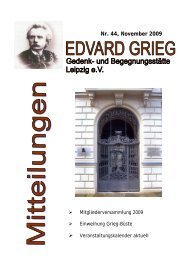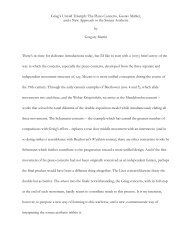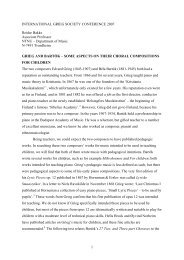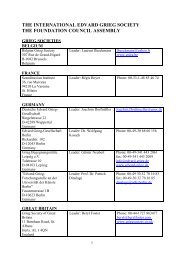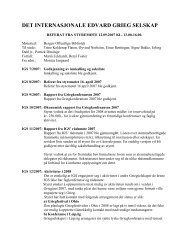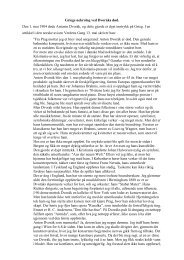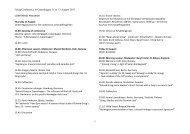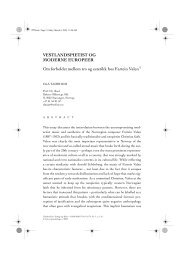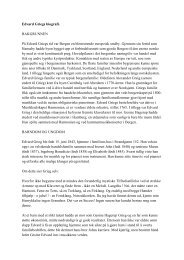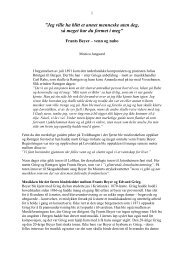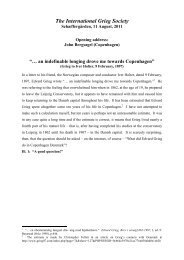Gregory Martin - paper 2007 - Grieg Society
Gregory Martin - paper 2007 - Grieg Society
Gregory Martin - paper 2007 - Grieg Society
You also want an ePaper? Increase the reach of your titles
YUMPU automatically turns print PDFs into web optimized ePapers that Google loves.
contribute to the especially epic manner, in that, as the melody begins to disintegrate, the<br />
tune begins to sound less like a folk-song and more like the rune melodies or recitation<br />
formulae used by bards in the singing of epic poetry. The final three notes of the tune<br />
quicken to eighth-notes, further contract to just A and G, and accelerate into a lengthy<br />
tremolo; as in so many examples in late Beethoven, <strong>Grieg</strong> has effected the removal of any<br />
temporal guideposts. Suddenly, the music stops, there is a chasm of silence, and that<br />
devastating, low, lengthy E-flat octave (Ex. 9). 47 A long duration is sublime. 48<br />
47 In a letter of 27 March 1898, <strong>Grieg</strong> wrote to Frants Beyer about a performance of the Ballade by<br />
d’Albert: “you should have heard that daringly long fermata on the deep [E-flat]. I think he held it for half a<br />
minute! But the effect was colossal. And then he concluded that old, sad song so slowly, quietly and simply<br />
that I myself was completely enthralled (<strong>Grieg</strong>, Letters, 85).” Benestad notes here that in an extant<br />
recording, d’Albert’s E-flat lasts for about seven seconds (Ibid., FN 159).<br />
48 Immanuel Kant, Observations on the Feeling of the Beautiful and Sublime, trans. John T. Goldthwait<br />
(Berkeley: University of California Press, 1991), 49.<br />
24



